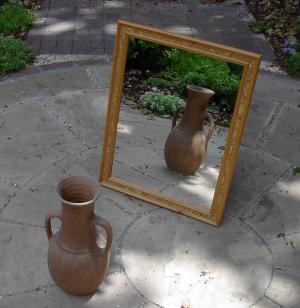Art as a Tool for Evolution and Self-Forgiveness
 In the creative act whether painting, sculpting, composing music, writing, or any other activity that stimulates us to create art there lies a power that transcends aesthetics and sensory pleasure. Art, in all its forms, is the primordial language through which humanity speaks to itself and the world a silent voice crossing centuries to remind us of who we are and who we might become. But what happens if, instead of viewing art as a final product, we begin to see it as a process, a tool capable of shaping not just our present but also our inner evolution?
In the creative act whether painting, sculpting, composing music, writing, or any other activity that stimulates us to create art there lies a power that transcends aesthetics and sensory pleasure. Art, in all its forms, is the primordial language through which humanity speaks to itself and the world a silent voice crossing centuries to remind us of who we are and who we might become. But what happens if, instead of viewing art as a final product, we begin to see it as a process, a tool capable of shaping not just our present but also our inner evolution?
I begin this reflection with the assumption that we all, consciously or not, have something to forgive ourselves for; we are imperfect beings, after all. Art is not a luxury but a necessity. It is the path through which humans can look within, unfiltered by rationality, confront the chaos and fragility within, and transform them into something new. Creating is an act of hope (a term I hesitate to use because of its implications, but for now, I will), or perhaps a possibility—though this word, too, feels insufficient. Let us return to "hope," then, which represents an act of courage that invites us to imagine a better version of ourselves. Art thus becomes a mirror, capable of reflecting both our shadows and our light. Even without technical mastery, belief in the process suffices.
Yet its power does not end there. Art is also an act of self-forgiveness. In a world that often imposes unattainable standards and pushes us to judge ourselves harshly, art allows us to recognize beauty in imperfection. By painting a canvas or shaping clay, we accept mistakes as part of the process, learning to see flaws as added value. It is a silent lesson, urging us to make peace with our weaknesses, which are often deeply personal shames we struggle to embrace.
Through art, we reconcile the past with the present, forgive mistakes, and envision a future where those very errors become the foundation for growth. It is no coincidence that ancient Japanese traditions like kintsugi celebrate this transformation: a crack in a ceramic piece is not its end but the beginning of a new chapter, adorned with gold.
If we were to regard art as a human imperative, we would discover it is not merely a mirror of our "soul" but also the means to make it clearer. To evolve is not to erase who we have been but to accept it and build a new harmony upon it. And perhaps, in the end, art teaches us this: that we are always a work in progress, capable of forgiving and transforming ourselves each day into something more beautiful.


